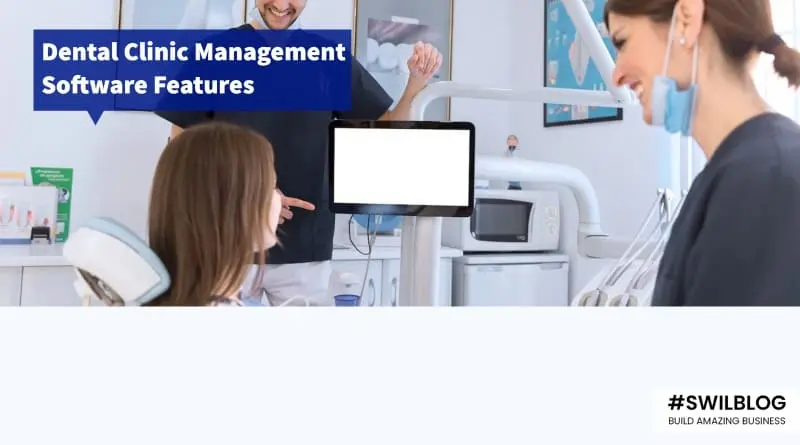The COVID-19 pandemic brought a renewed sense of appreciation for the pharmaceutical industry. Amidst these trying times, access to the best medication is a great priority for communities around the globe. Pharmacy businesses and companies work hard to play their role in providing people with timely healthcare and save lives in the process.
Undoubtedly, technology played a large part in the improving delivery of pharmaceutical products and healthcare as a whole. There’s a growing list of software used in pharmaceutical industry sectors to streamline operations and improve services and products provided. One example pharma businesses should look into is ERP software.
Index..
- What is ERP Software and What Does it Do?
- What Are the Benefits of Having Pharma ERP Software?
- How to Roll Out an ERP Software
- Improving Healthcare through Technology
What is ERP Software and What Does it Do?
An ERP software is built for business process integration. It helps companies efficiently exchange information through a centralized database. Businesses in pharmaceutical markets use ERP software to integrate functions across accounting, manufacturing, supply chain, sales, marketing, and human resources.
ERP software runs a system that people can access anytime and anywhere. It provides timely updates so the staff involved in the value chain can see what is happening in the day-to-day operations of a company.
The ERP software market is expected to grow to $49.5 billion by 2025, further solidifying the idea that ERP software is an in-demand product and adds value to an operation.
Some of the basic functions of most ERP systems include:
- Customer relationship management or CRM tools create a dashboard for lead generation, lead management, sales, and customer service.
- Inventory management systems help logistics and fulfillment teams keep track of deliveries and systematically track orders, and log client details. It also stores a history of shipments in one system.
- Data reporting and analysis provide stakeholders and leaders with updated data and information to make informed operational decisions. This information includes the number of work orders, hours worked by personnel, revenue, and costs per department./li>
- Human resource management systems give HR professionals a database for employee information, payroll, work hours, additional benefits, leaves, offense histories, and more.
- Supply chain management systems help the company keep track of suppliers and the bidding prices to make better costing decisions.
- Finance and accounting help track expenses and revenue to give accounting and the whole executive committee more information pertaining to the company’s financial sustainability and profitability.
What Are the Benefits of Having Pharma ERP Software?

Here are just some of the competitive advantages a company with an enterprise resource planning solution will have.
Improved business process management
Among companies that implemented ERP software to the organization, up to 49% said that it improved all their business processes. A company with lesser silos and more inter-department collaboration operates more smoothly. ERP tools provide a central place for all staff to communicate and avoid letting any information fall through the cracks.
Using an ERP solution for inventory management is highly efficient. Mainly, that’s because a centralized database can provide staff and personnel in inventory and fulfillment with access to timely information to make data-driven decisions.
For instance, an ERP solution can be a great way to store crucial product information such as expiry dates so that logistics teams can send out stocks on a first in first out (FIFO) basis and avoid deadweight loss on expired items.
Inventory management systems also allow for the seamless outflow of information. For instance, financing and accounting departments get accurate shipping costs to log logistical expenses.
Streamlines billing and finance
ERP software also plays a huge role in better finance practices in a company. Billing management solutions give pharmaceutical companies a systemized database of orders, deliverables, and accounts receivables, ensuring timely collections. These billing management systems also have automated processes that can perform simple tasks such as invoice generation, notifying clients of overdue balances, bank reconciliation, tax computation and filing, balance sheet generation, and many others.
ERP software can also provide other departments with solutions that can improve their finance systems. For example, human resources can use ERP tools to track payroll and generate payslips as needed.
Ensures that end user gets best possible products
Pharmaceutical companies inadvertently serve end-users with the best products and services by improving systems like customer relationship management, logistics, and customer service. Avoiding expiration dates reduces the chances of poor medicine quality. Timely delivery ensures that communities get access to the best healthcare products. Customers have access to a dashboard for concerns and questions. These are just three case scenarios. The list could go on.
How to Roll Out an ERP Software
A carefully planned deployment is crucial for a successful ERP implementation. Sixty-seven percent of organizations who apply ERP software to their organizations consider their rollouts successful. So what do companies do to effectively roll out and implement an ERP system internally?
Select the best tool for the company’s context
The best ERP for the pharmaceutical industry largely depends on the specific needs of the organization. There are dozens of options online that fit various contexts, and you’ll need to find the one that fits your business best. You can achieve this by asking the right questions, such as..
- What are your operational pain points?
- What are the laws and regulations governing my company’s area of coverage?
- Which features do you need?
- What benefits resonate with you most?
- What’s your budget?
Pick a team to implement and manage the software
The challenge with system rollout is compliance and usage. Putting up a champion to safeguard usage can help curb this issue. Hiring someone with a healthcare administration degree and good administrative and leadership skills can be a big plus.
In larger pharmaceutical companies, a team might be needed to implement and manage the software best. Having a technical support staff or team can also help. In many cases, companies will have an IT department that the ERP team can collaborate with.
Make necessary customizations
ERP tools need to be set up to fit the company’s specific needs, such as warehouse locations, operations manuals, work schedules, contact channels and so on. Have a committee set the system up for the whole team. In many cases, ERP solutions providers also have teams ready to provide assistance with setup and onboarding.
Roll out in Tranches
Applying any pharmaceutical software will face friction or push back. To avoid that, it’s best to roll out the system gradually to provide more focused guidance and galvanizing. Start with the department with the least amount of organizational and technological friction and move your way through the company. Ultimately, the goal of ERP is to integrate all systems in one place. However, these processes can take time. On average, mid-sized companies take up to 6.7 months to fully roll out a system.
Improving Healthcare through Technology
The digital transformation revolution isn’t just occurring with ERP software for pharmaceutical industry players. There are many other technological advances that are changing the way healthcare workers and companies provide timely and quality healthcare. As the world of digital solutions keeps growing, pharmaceuticals and healthcare as a whole will improve, saving many lives in the process.








